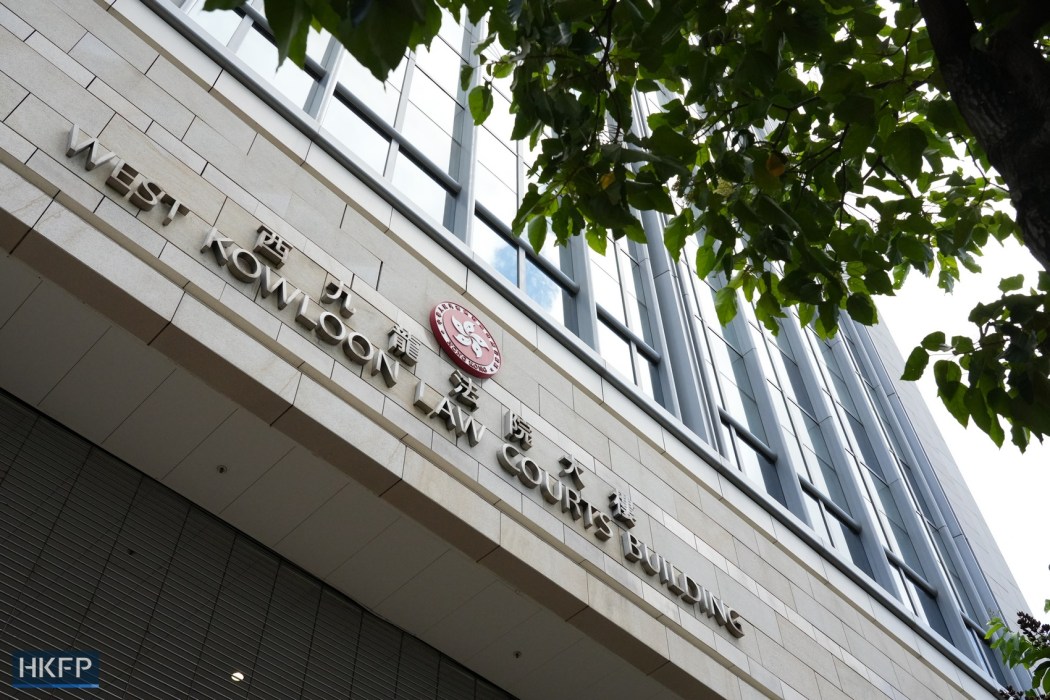A Hong Kong court has been urged to consider whether the sedition law imposes disproportional restrictions on free speech.
Koo Sze-yiu appeared at the West Kowloon Magistrates’ Courts on Monday in front of Principal Magistrate Peter Law, one of the city’s handpicked national security judges, on Monday.

The activist was arrested by the national security police on February 4 – hours before a planned protest against the Winter Olympics.
Initially arrested under the Beijing-imposed national security law, Koo, who was 75 at the time of the arrest, was later charged under the colonial-era legislation and accused of “attempting to do or making any preparation to do an act or acts with seditious intention.”
Koo’s representative, barrister Chris Ng, argued that the sedition law, which dates back to 1938 and was last amended in the 1970s, was not compatible with the city’s Basic Law and the Hong Kong Bill of Rights Ordinance.
The barrister said that under the Bill of Rights Ordinance, a balance had to be struck between protecting society’s greatest interests and the freedom of speech.
Ng argued that as the wording of the colonial legislation stipulated that an offence could be committed without elements of violence, as the prosecution threshold was low.
To ensure that the basic rights of Hong Kong citizens were not unreasonably restricted, Ng said that the court should consider the systematic proportionality of the legislation, and take into account whether there were any calls to – or uses of – violence involved, neither of which existed in Koo’s case.

The barrister also questioned why Koo had only been arrested this year over the planned protest using a prop coffin, when the activist had used similar protest methods over the past three decades.
Ng said that, while Koo’s methods might have been “offensive,” the barrister argued that the activist “only wanted to point out the mistakes” of the administration and the Central government, with a hope that “they would change.”
The defence also said that the prosecution did not have concrete evidence to prove that Koo – a cancer sufferer – encouraged Hong Kong citizens to act in an unlawful manner.
Ng also asked the court to consider the Johannesburg Principles on National Security, Freedom of Expression and Access to Information when dealing with the case. The barrister argued that while the principles were not binding to Hong Kong, it could be used as a binding principle in the case.

According to the prosecution’s case, Koo planned to use a prop coffin in the protest, with slogans including “beat the Communist Party,” “end one-party rule,” and “democracy and human rights above Winter Olympics.”
Freedom of speech ‘not absolute’
Following Ng’s submission, the magistrate asked the prosecution to clarify how some of the slogans were liable to “excite Hong Kong citizens to attempt to procure the alteration, otherwise than by lawful means, of any other matter in Hong Kong as by law established.”
The prosecution, led by Acting Deputy Director of Public Prosecutions (Special Duties) Anthony Chau, said in response that the court had to look at the case “as a whole,” instead of trying to match each of the slogans to a seditious intention.
Chau said that Koo planned to walk to China’s Liaison Office on a “significant date,” which was the opening day of the Winter Olympics. The prosecution said that Koo intended to excite citizens to disobey the Basic Law by overturning the rule of the Communist Party, which was a “constitutional foundation” established in the Basic Law and Constitution.
The prosecutor also cited previous court judgements arguing that freedom of speech was “not absolute.”
The court session on Monday lasted for around two and a half hours. Law adjourned the case and said he will hand down a verdict on Tuesday morning.
The International Olympic Committee has not responded to HKFP’s enquiries about the case.
Correction 5:50pm: Owing to an editing error, a previous version of this article incorrectly stated that Koo Sze-yiu is a member of the League of Social Democrats.
Support HKFP | Policies & Ethics | Error/typo? | Contact Us | Newsletter | Transparency & Annual Report | Apps
Help safeguard press freedom & keep HKFP free for all readers by supporting our team
























